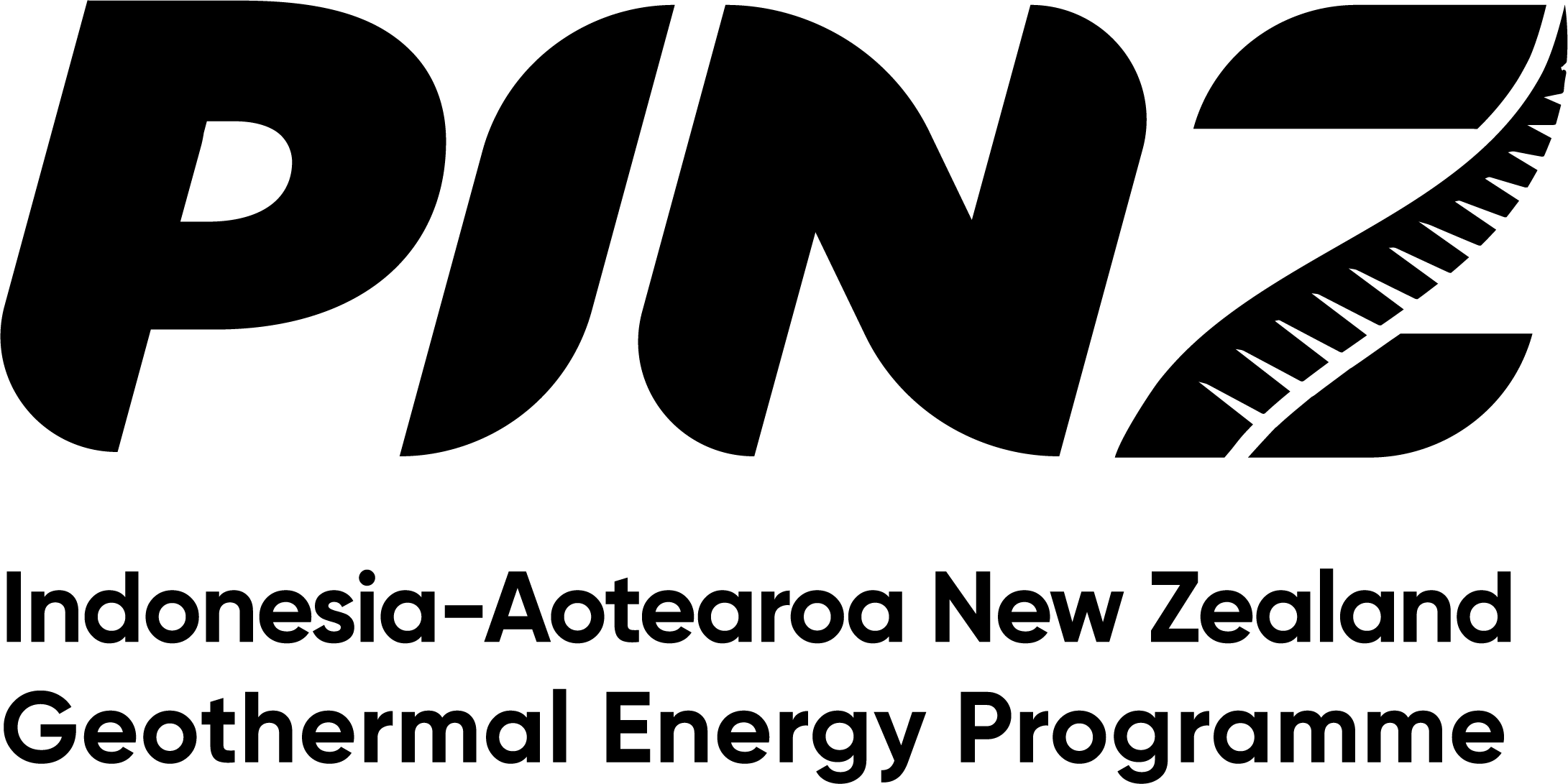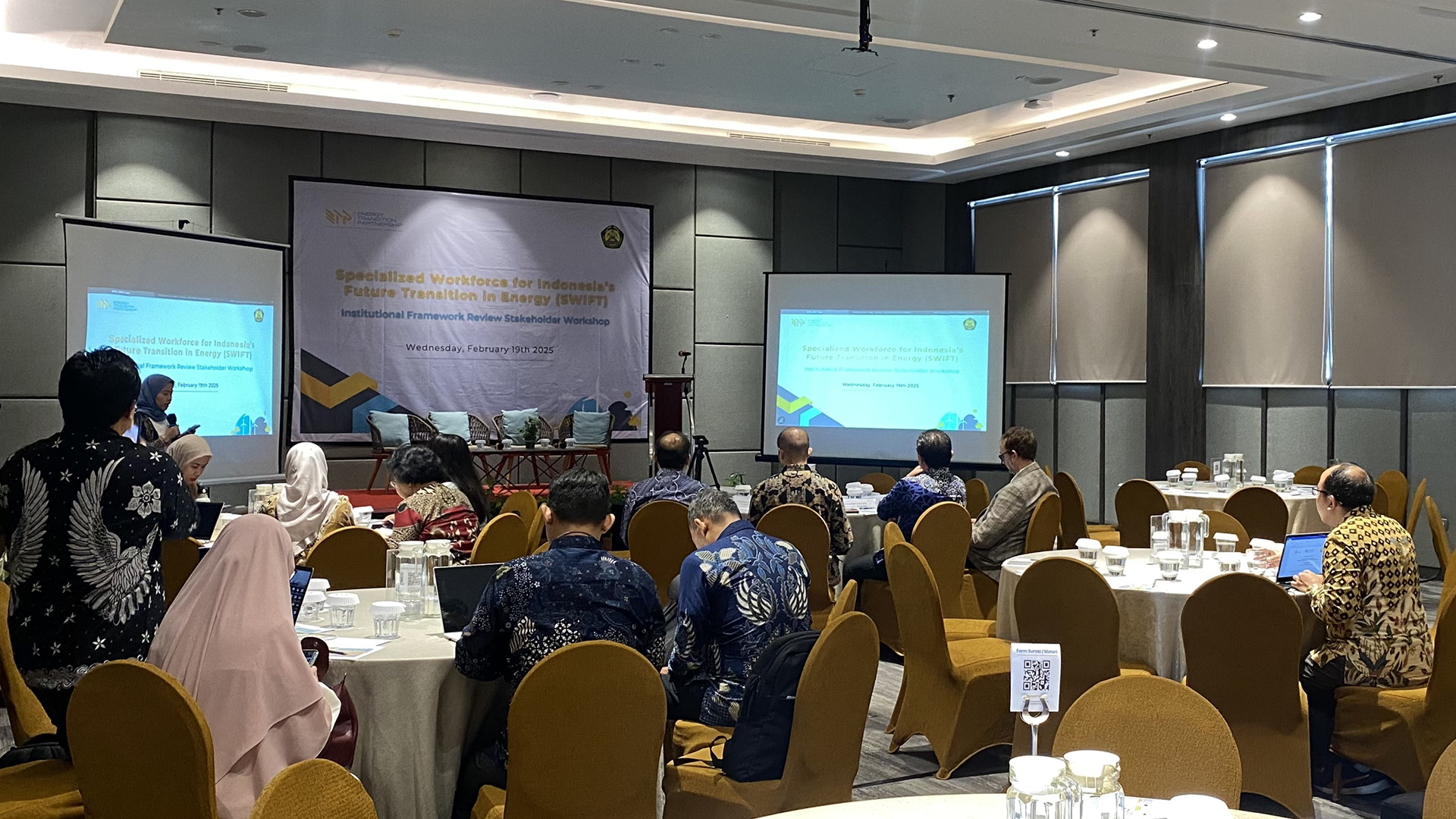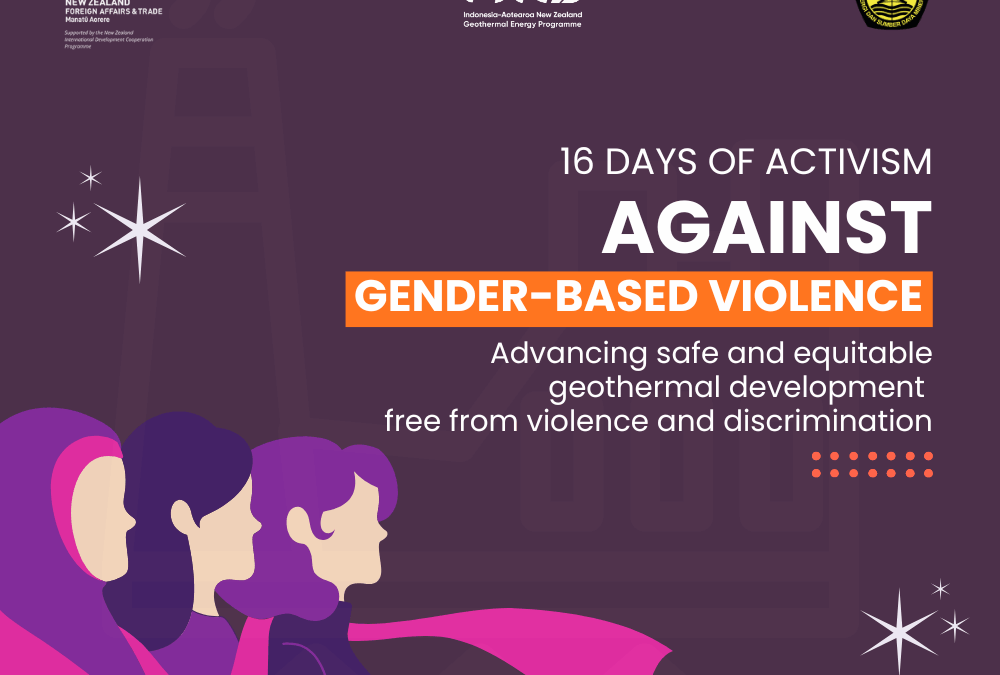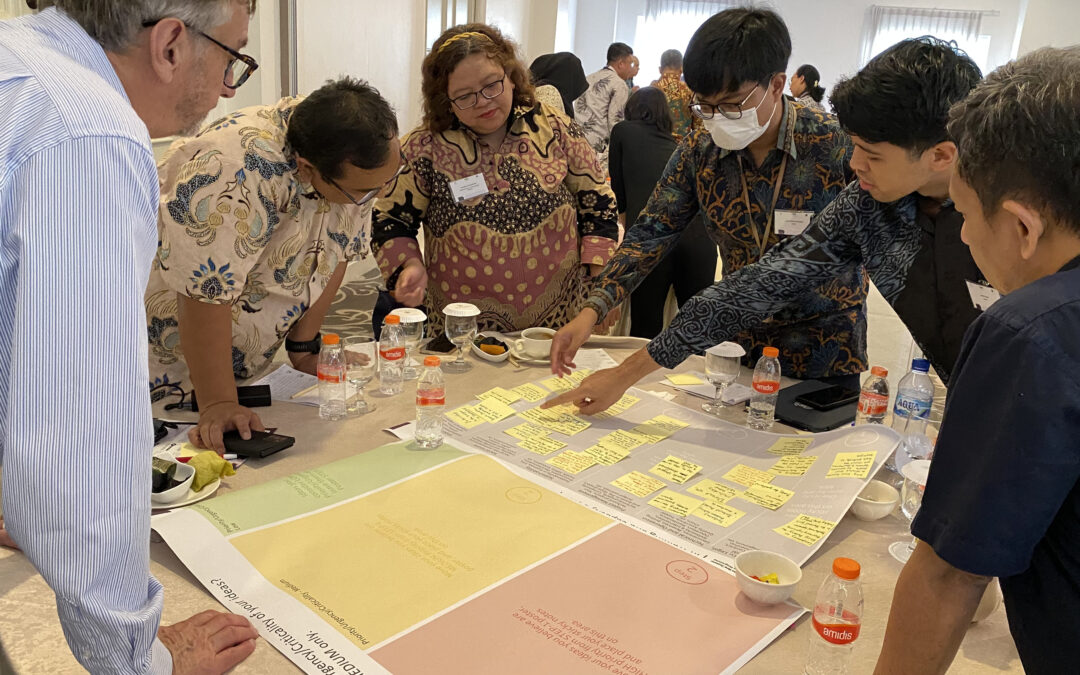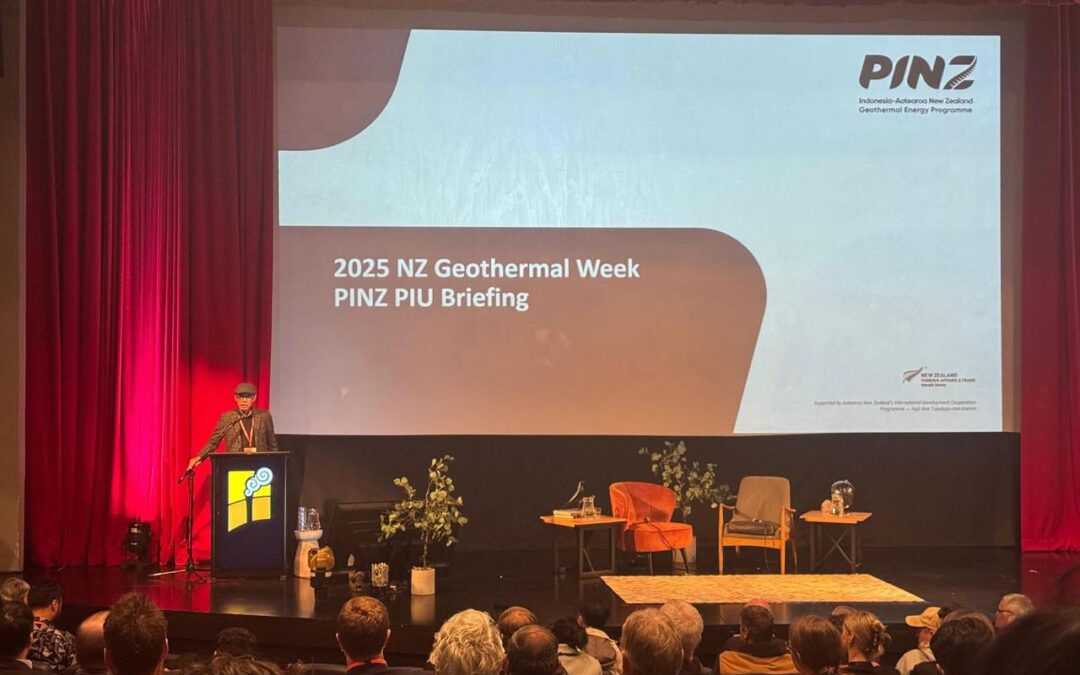Indonesia is rich in renewable energy potential, including geothermal energy, which plays a crucial role in bolstering national energy resilience. As the country aims for net zero emissions (NZE) in the energy sector by 2060, a significant transition to clean energy is essential. This transition hinges not only on technological advancements but also on the availability of skilled human resources. The Indonesia-Aotearoa New Zealand Geothermal Energy Programme (PINZ) is committed to supporting the Indonesian government in enhancing the capacity and expertise of the geothermal workforce.
This commitment is translated into with one of PINZ’s area of work of increasing geothermal workforce skills and capacity. In order to foster collaboration and sharing of expertise on improving the workforce, PINZ attended events held by the Ministry of Energy and Mineral Resources and other development partners.
Participation and attendance on events on workforce development
PINZ attended the launching of the 2nd Human Capital Summit of Energy 2025 in September 2024 held by the Human Resource Development Agency (BPSDM) of the Ministry of Energy and Mineral Resources. Following the launching, PINZ also participated in series of seminars held by BPSDM on human capital, including Seminar on Energy Transition Towards Net Zero Emission 2060 Electricity Sector: Policy, Infrastructure and Human Resources for a Sustainable Future in October 2024; Seminar on Opportunities and Challenges for Human Resource Development in the New and Renewable Energy Sector and Energy Conservation Towards NZE 2060 in November 2024; and Seminar on Indonesian Geothermal Direct Use to Accelerate Potential Inventory and Utilisation in December 2024.
In alignment its goal, PINZ also attended the Stakeholder Workshop “Specialized Workforce for Indonesia’s Future Transition Energy (SWIFT)” held on February 19, 2025. Organized by the BPSDM, through the Center for Human Resource Development in Electricity, New and Renewable Energy, and Energy Conservation (PPSDM KEBTKE), in collaboration with the Southeast Asia Energy Transition Partnership (ETP) UNOPS, this workshop brought together key stakeholders to discuss the future of Indonesia’s energy workforce.
During the workshop, representatives from NEYEN, Swiss German University, and The Purnomo Yusgiantoro Center presented findings from their study, “Specialized Workforce Development to Support the Energy Transition in Indonesia: Review of Institutional Roles and Governance Mechanisms.” This study aims to bridge the workforce gap in low-carbon industries by developing skill transfer systems and specialized training programs. By incorporating global best practices, it outlines the institutional roles and governance mechanisms necessary for Indonesia’s transition to a skilled and sustainable energy workforce.
The study revealed that green jobs currently account for only 2.62% of Indonesia’s workforce, highlighting an urgent need for policy interventions to expand this sector and mitigate socio-economic impacts. Despite the potential to create 1.12 million green jobs, systemic challenges continue to hinder workforce growth, necessitating a coordinated response from all stakeholders.
To address these challenges, the study offers six key policy and technical recommendations aimed at enhancing workforce adaptability and fostering institutional collaboration. These recommendations include improving the quality of institutional coordination and minimizing fragmented programs; enhancing data systems for workforce planning; improving the quality and capacity of training institutions for manpower planning; maximizing the process of preparing certification standards; optimizing regional access and capacity; and increasing inclusivity in long-term workforce planning.
PINZ one of areas of support: Increasing geothermal workforce skills and capacity
These insights resonate deeply with PINZ’s commitment to supporting Indonesia’s geothermal energy development as part of its strategy to achieve NZE by 2060. One of PINZ’s area of work focuses on enhancing geothermal workforce skills and capacity. This initiative will facilitate vocational training courses for geothermal technicians and plant operators at selected Indonesian polytechnics, building on the success of previous support. It will also provide geothermal related short course training and group workshops delivered in Indonesia to address gaps and introduce new relevant subjects
The findings from the study provide valuable insights for PINZ in identifying challenges related to labour market dynamics and Indonesia’s energy transition agenda. The recommendations serve as a guiding framework for PINZ, particularly in fostering multi-stakeholder collaboration, enhancing capacity development for training providers, improving access to training, implementing lifelong learning models, and integrating gender equity, regional access, and social inclusion into workforce planning.
Through these efforts, PINZ hopes to contribute in the collaborative efforts in increasing geothermal workforce skills and capacity that will support Indonesia’s ambitious energy transition goals, ultimately contributing to a sustainable and resilient energy future.
